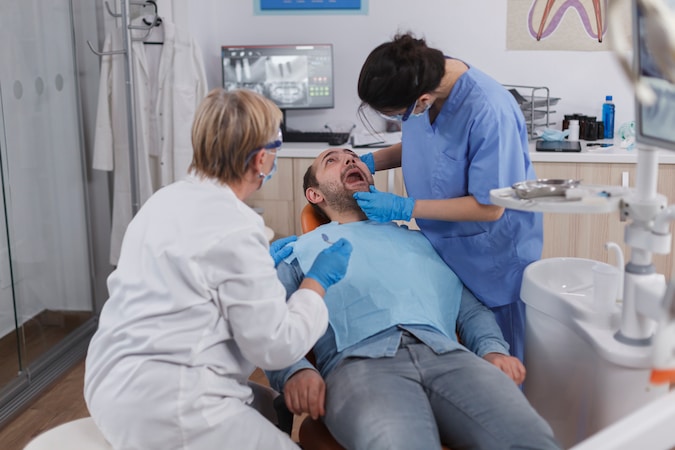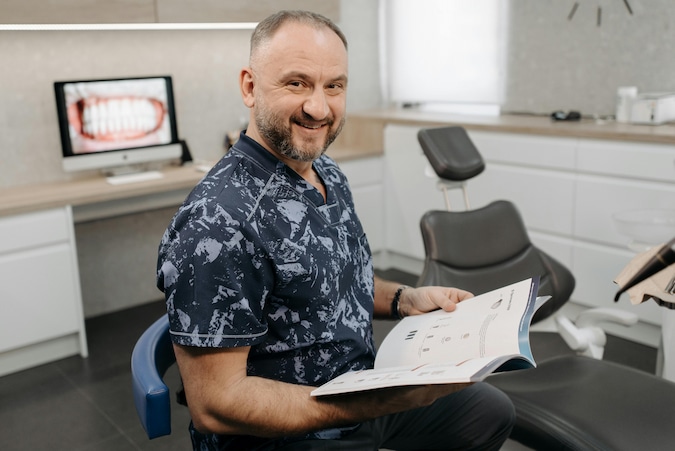
Dental Insurance Coverage for Emergency Care Explained

When a dental emergency strikes, having the right dental insurance can save you from unexpected financial burdens. Dental insurance often covers emergencies, but understanding your plan’s details is crucial to avoid surprises.
Dental insurance is your financial shield during emergencies like severe toothaches, broken teeth, or infections. This article will explore how dental insurance covers such emergencies, outline key limitations, and provide tips to maximize your coverage.
Key Takeaways:
- Dental insurance typically covers common emergencies like urgent tooth repairs and extractions.
- Coverage may vary based on your plan, provider network, and the nature of the emergency.
- Understanding your policy’s exclusions, waiting periods, and coverage caps is essential.
Understanding Dental Insurance

Dental insurance helps manage the cost of routine and emergency dental care. Common plans include PPO, HMO, and indemnity plans, each with varying flexibility and coverage levels. These plans usually cover preventive care, basic procedures, and major dental work. However, coverage specifics, particularly for emergencies, can vary widely between plans.
For instance, PPO plans offer more flexibility in choosing your dentist but typically cover a higher percentage of costs when using in-network providers. Conversely, HMO plans may limit you to a network of dentists but offer lower out-of-pocket costs.
What Constitutes a Dental Emergency?
A dental emergency requires immediate attention to prevent further damage or relieve severe pain. Typical emergencies include severe toothaches, broken or knocked-out teeth, and dental abscesses. These conditions require swift intervention to avoid complications and maintain oral health.
For example, a knocked-out tooth can often be saved if treated promptly, while an untreated abscess can lead to serious health issues. Therefore, understanding what constitutes a dental emergency and how your insurance handles it is crucial for effective management.
How Dental Insurance Covers Emergency Care
Dental insurance often covers emergency procedures, but the extent of coverage can differ based on several factors:
- In-Network vs. Out-of-Network: Emergency care provided by in-network dentists is usually covered more comprehensively, while out-of-network services may involve higher costs1.
- Factors Influencing Coverage: Your specific plan, the nature of the emergency, and any pre-existing conditions can significantly affect coverage23.
- Typical Coverage: Common emergency treatments like urgent tooth repairs, pain management, and extractions are generally covered, but the level of coverage varies12.
Limitations and Exclusions in Coverage
While dental insurance can be a financial lifesaver during emergencies, it’s important to understand its limitations:
- Pre-existing Conditions: Coverage may be limited or excluded for emergencies related to pre-existing conditions like untreated cavities or gum disease3.
- Waiting Periods: Some plans impose waiting periods before coverage for major procedures kicks in. During this period, you may have to pay out-of-pocket for emergency treatments3.
- Annual Caps: Many plans have annual coverage limits, after which you are responsible for any additional costs2.
Steps to Take During a Dental Emergency

Knowing what to do during a dental emergency can help you navigate your insurance and minimize out-of-pocket costs:
- Contact Your Dentist: Reach out to your regular dentist first. Many practices have emergency slots or after-hours contacts2.
- Verify Insurance Coverage: Before treatment, confirm your coverage with your insurance provider to avoid surprises4.
- Documentation: Keep detailed records of the treatment and all communications with your insurance provider. This is crucial if you need to file a claim or dispute a denial4.
Maximizing Your Dental Insurance Coverage
To get the most out of your dental insurance during emergencies, consider these strategies:
- Regular Check-Ups: Preventive care can help you avoid emergencies. Most plans cover routine check-ups at a higher rate, reducing the likelihood of costly emergencies3.
- Understand Your Policy: Familiarize yourself with your plan’s specifics, including emergency coverage, exclusions, and out-of-pocket costs3.
- Select Comprehensive Coverage: Choose a plan that offers robust emergency coverage, especially if you have a history of dental issues3.
Options for Patients Without Dental Insurance
If you don’t have dental insurance, there are still options for managing emergency dental care:
- Payment Plans: Many dental practices offer payment plans that spread the cost over time, making it more manageable3.
- Sliding Scale Fees: Some clinics offer sliding scale fees based on your income, making care more affordable3.
- Community Clinics: Look for community clinics or charitable organizations that provide emergency dental care at reduced costs.
Final Thoughts
Understanding how your dental insurance handles emergencies is crucial for avoiding financial stress during unexpected situations. By regularly reviewing your policy, maintaining good oral hygiene, and knowing the steps to take during an emergency, you can ensure you’re well-prepared. Whether you have dental insurance or not, proactive planning can make a significant difference in managing dental emergencies.
Frequently Asked Questions
What qualifies as a dental emergency under insurance?
A dental emergency typically includes situations requiring immediate care to relieve pain, prevent further damage, or address infections. Coverage depends on your insurance policy.
How do I know if my plan covers a specific emergency?
Review your policy documents or contact your insurance provider to clarify coverage details. They can inform you about what is covered and any limitations.
Can I use medical insurance for dental emergencies?
In some cases, medical insurance may cover dental emergencies, especially if the situation results from an accident or involves a serious infection. Check with your provider for details.
Sources:
- Superbill. (n.d.). Emergency Dental Care Covered by Insurance. Superbill.
- Bear Creek Family Dentistry. (2024, March 8). Will Dental Insurance Cover Emergencies? Bear Creek Family Dentistry.
- Fab Dental. (n.d.). Emergency Dentists and Dental Insurance. Fab Dental.




